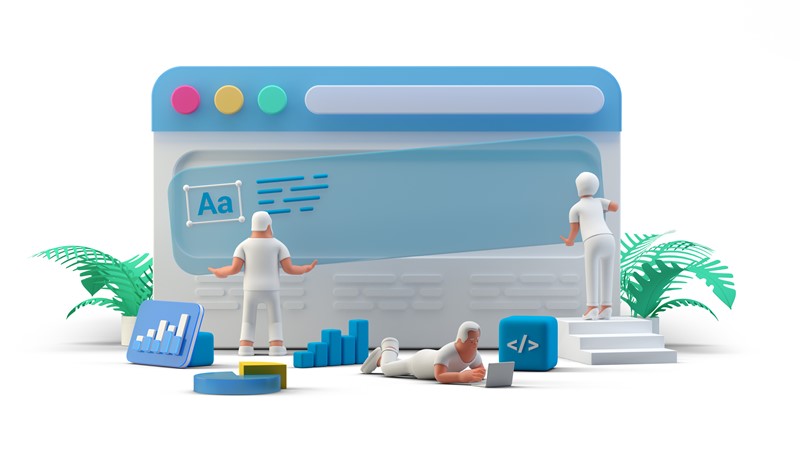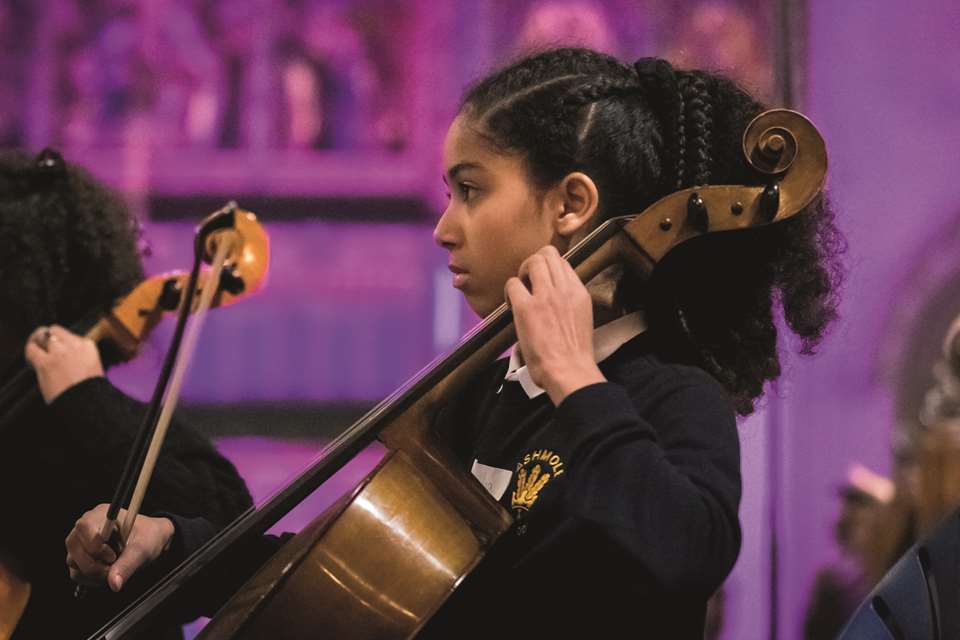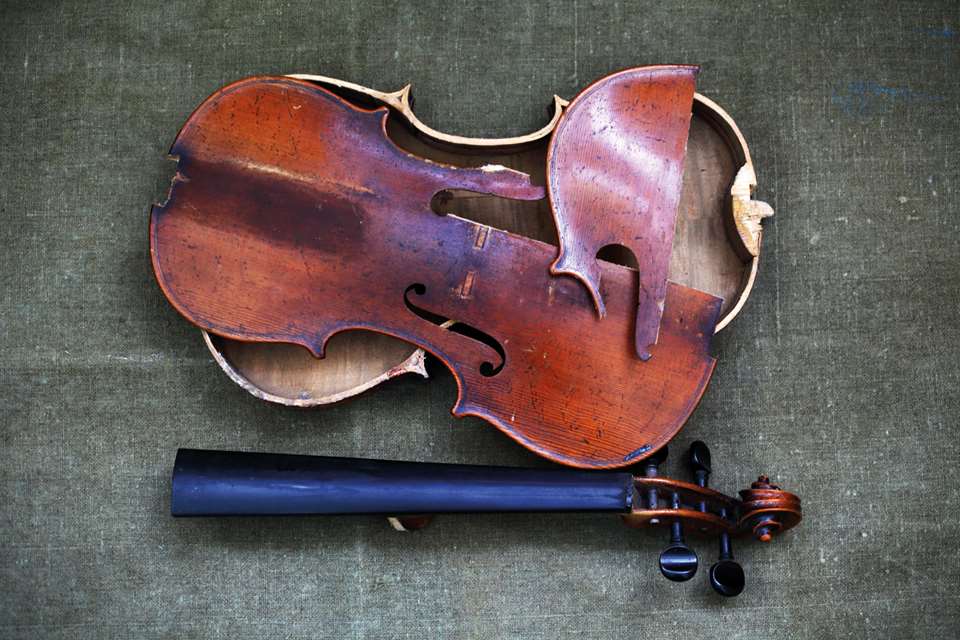Star on screen: A self-employed musician's guide to web presence
David Taylor
Thursday, March 14, 2024
An online presence is essential for jobbing musicians, but how do the uninitiated know their cursor from their cache? David Taylor offers a helpful introduction to creating a professional profile

This article was originally published in our Autumn 2023 issue. Click here to subscribe to our quarterly print magazine and be the first to read our March issue features.
Like it or not, the internet is an integral part of our lives. It is the first place we now look for information, products and services – so it’s vital for musicians to have their own website and an active presence.
There are plenty of benefits to having your own site, with the main one being discoverability. Having your own website allows you to be found on the internet. This isn’t just for completely organic discovery, but also for referrals. In the same way that if you are recommended a
dog groomer or a restaurant, you search for their website to find out more, people will look for your website after being referred to you to find out more about you.
In the digital age it looks incredibly unusual for any business not to have a website – if that person who is referred to you can’t find you, they’ll go and find someone else. The point of a website extends beyond just being found. This isn’t just a listing in a directory. Your website is an opportunity to tell the story of you and your business to the world. It’s somewhere where you can convey your purpose, provide a compelling case for people to hire you, offer products, services and an online community.
Starting a website or improving your existing website can be confusing, so we’re going to look at how you make a website, what a basic website needs, how to take your website to the next level and the common mistakes you should avoid.
How do you make a website?
Yes, you can hire someone to build you a website, but the good news is there are now much cheaper and easier options to help you build your own without needing any technical knowledge. Both Squarespace and Wix.com are fantastic website builders that let you customise templates. They are also relatively cheap. This also makes it easy to update and change your website going forwards.
If you ever get stuck, there’s ongoing support at no extra cost, and there are plenty of YouTube tutorials if you need something a bit more advanced.
"It’s vital for musicians to have their own website and an active presence”
Website basics
At its most basic, a website is somewhere for people to find out about you and get in touch with you. And that’s it, nice and simple. To achieve this, all you need are three pages:
- A ‘home’ page – a page providing basic information about you and an overview of your work
- An ‘about’ page – pretty straightforward: a page which is all about you (includeyour biography here)
- A ‘contact’ page – a page listing how people can get in touch with you
If you want, you can include all of these as a one-page website; a long page with these items as different sections. These pages should also be pretty simple and straightforward, so you can get a basic website up and running in no time.
 © Adobe Stock
© Adobe Stock
Building a better website
Once you’ve got the basics sorted you can start to add more functionality to your website. This means adding more content and more pages, giving a fuller picture of what you do and offering more ways to interact with you.
While these aren’t ‘must haves’, they’re definitely a great addition:
- A ‘listen/audio’ page – you can embed recordings from Spotify etc into your site, showing potential audiences your music
- A ‘video’ page – showcasing performances etc
- A ‘gallery’ page – a collection of images. Less important than the previous two, but another way people visiting your site can get an idea of who you are
- Specialist areas – these could be dedicated pages for specific projects, teaching, masterclasses and so on.
How to take it to the next level
You’ve got plenty of content on your website now, but there are still a few tweaks you can make to take it to the next level. My personal favourite is including a button with a link to a ‘press kit’ on the about page. This is a link to a Google Drive or Dropbox folder that includes biographies of various lengths, hi-resolution promotional photos to download (including photographer credit), and anything else a promoter might need. This makes things as easy as possible for promoters (and journalists) and saves you all the hassle of having to email these over every time you have a gig.
Carrying on this approach, you can do the same thing by offering potential promoters up-to-date access to your repertoire list.
Although it might not necessarily be its own separate page, including quotes and testimonials is a great way to demonstrate the quality of the work that you do.
Your website can also include a booking system for any teaching you might be doing. You can use the appointment system in your website builder (Wix.com or Squarespace), or a separate dedicated system like Calendly.
Finally, you can add a shop. As well as selling physical items, you can offer digital downloads of things you might have created to support your career, such as practice diaries, warm-up exercises and any of your own compositions and arrangements.
"Your website is there to try and sell you to your potential audience and customer base”
Common mistakes
Having worked with musicians on self-promotion for a long time I’ve seen a lot of websites and picked up on a few common mistakes.
The main one I come across is that musicians treat their website like an online CV. It dives straight into a very formal biography and a list of awards or achievements, and as a result comes across as cold. Your website is there to try and sell you to your potential audience and customer base and should be written in a way to reflect that. It should market you and your work.
In your ‘About Page’ I recommend leading with a more emotive and informal description, giving a sense of you, your personality, your music, and your approach. You can then give people the option to read or download your more formal biography after this.
Also, a lot of websites are filled with content they don’t need. For example, filling the website with extra photos doesn’t serve a purpose. Although these look nice, they will end up getting in the way, preventing people from moving round your site and finding the information they need easily.
Social media
After getting set up with a website, it’s time to start connecting with your audience through social media.
I find that there is a lot of bad advice given to musicians about social media, particularly in terms of what platforms to use. In reality, there is no platform you ‘should’ be using. Saying that you ‘need to be using Instagram’ ignores what your preferred communication style is, where you get your energy from, and your skillset.
The approach I love to take is advising musicians to use the platforms that they enjoy using and focus on a way of communicating that they enjoy. For example, if you love writing but hate making videos, TikTok would be the worst platform for you, and it would be an uphill battle to keep posting there. However, you would probably enjoy Facebook, Twitter/X, and LinkedIn.
It’s best to start focussing on one platform and then expand to two when you feel comfortable. At this point, think about what your skills are and what you enjoy. Is it photography, short-form video, or writing? From there, look at which channels you already have and what you like to use – and concentrate your energy on the one that will work best for you.
If you’d like more advice on building your social media, you can read my full guide here.
|
The Independent Society of Musicians (ISM) is a diverse, growing membership of professional musicians. ISM members are backed by expert legal assistance from a specialist in-house legal team and comprehensive insurance including public liability and legal expenses cover. Members gain practical business and professional advice, discounted musical instrument insurance, wellbeing services including counselling, physiotherapy and hearing health support, networking, and much more. Membership starts at £17 a year for students. |




